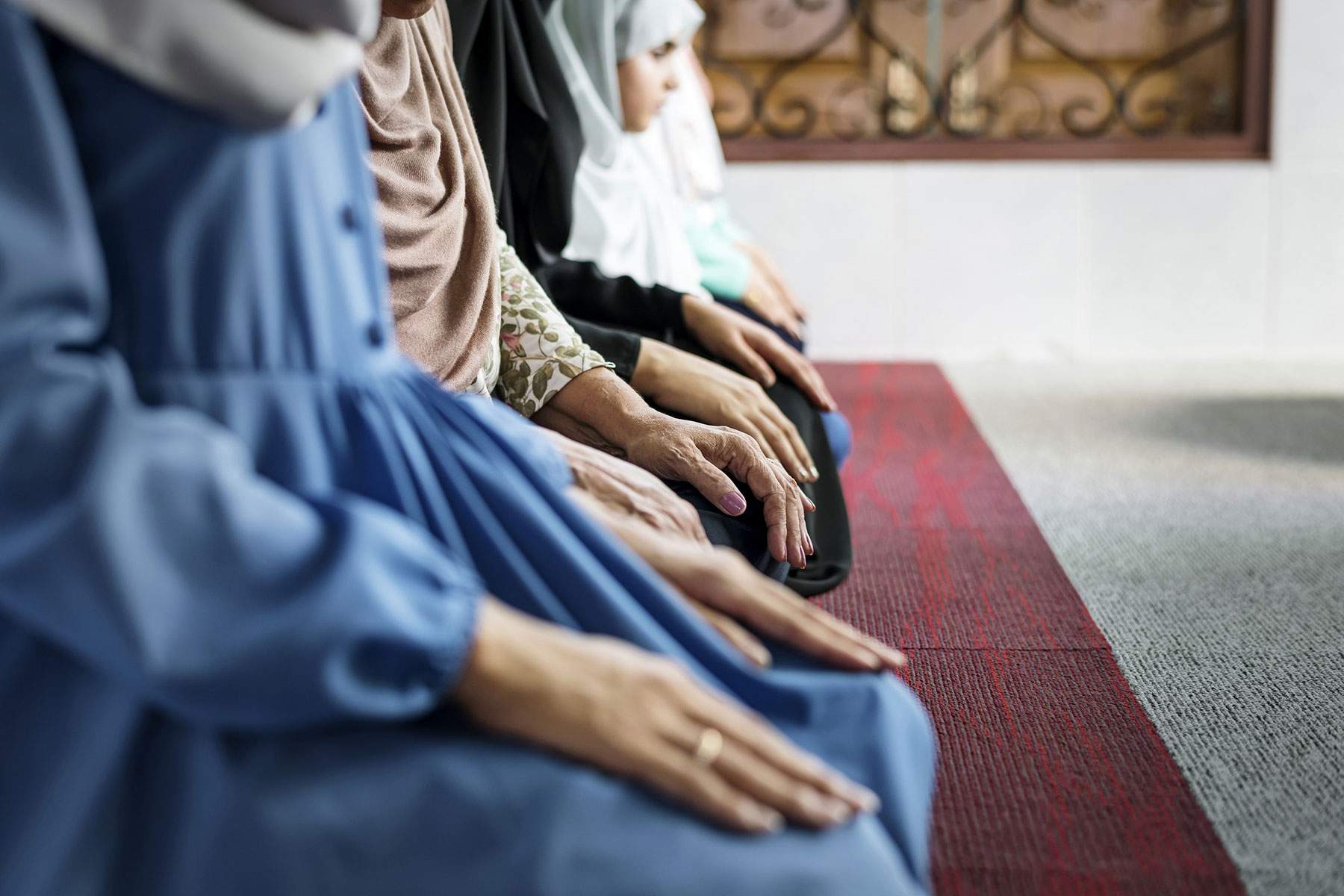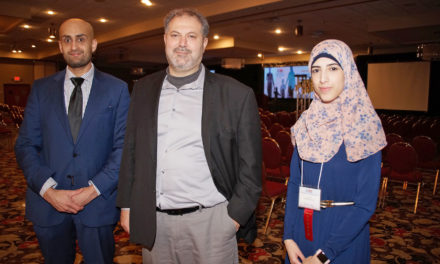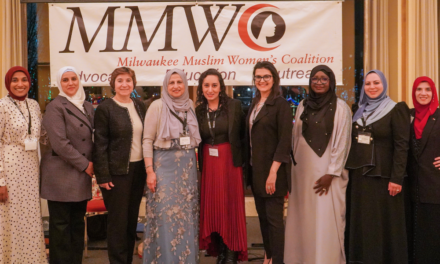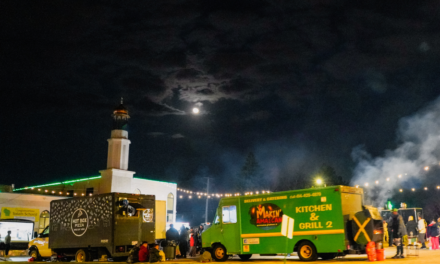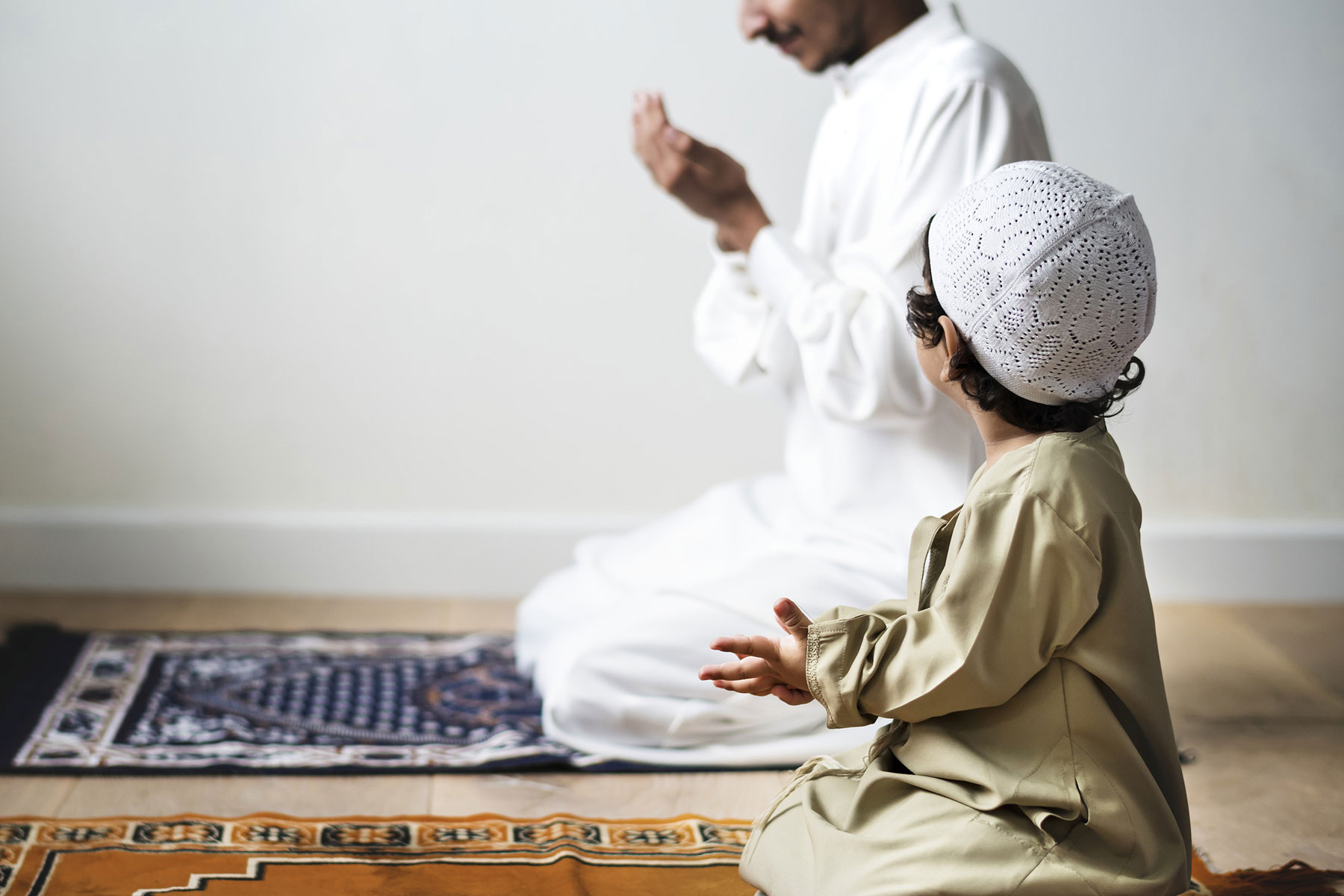
Q&A: Reflections on Ramadan
The Wisconsin Muslim Journal circulated questions about Ramadan to residents around Southeast Wisconsin. Through forwarded referrals, replies arrived from as far away as Florida. This article is a compilation of those Questions and Answers, presenting insight into the various personal meaning of and experiences with the Holy Month.
Wisconsin Muslim Journal: Do you feel recognizing the importance of Muslim holidays outside of Islamic communities is important? If so, why?
Dr. Magda Abdelfattah: “Firstly, it needs to be understood that Islam is a religion. While there are cultural traditions that some associate with Ramadan that vary from one country to another and even from one family to another, the overall meaning and stories often associated with our holy month of Ramadan are based in our faith, not our culture. The stories are those of Prophet Muhammed, peace be upon him, and his companions. There are so many stories from which a person can learn so much, particularly lessons in morality and helping one maintain their Iman, or faith. I personally enjoy these stories, but I identify them with my belief system, and would not reference this as a “cultural” phenomenon. It is within the realm of Islam. This shows that even though Islam exists in nearly all the countries in the world, culture is not the unifying factor. It is the religion we ascribe to with our faith in Allah SWT (Sabahan Wa Taala).”
Inam Al-Abed: “For me, it is important to understand the cultural history and the meaning beyond the holidays to fully appreciate and participate in them. I also like to know the history behind the holidays so I can educate others and even my own children, when I am asked about them. I feel like when I speak on the meanings of Ramadan and Eid, it is an opportunity to bring more awareness to Islam in a positive way.”
Dr. Sharif R. AbdelFattah: “The reason we celebrate Ramadan is because it is the month of the revelation of the Quran, which are the guidelines for how we practice our faith. The story is told with a purpose to remind us why we practice in the ways we do. It is mainly a reminder of why we are submitting to the will of God, and it seems to me that people from other faith communities do not understand this. It is about showing our submission to something higher than ourselves by going through difficulties, and that is easier to do together as a community.”
Bocar Ndiaye: “I truly think that the importance of Muslim holidays should be recognized and widely taught to people outside of the Muslim community. There is no better way of knowing a community than through its practices. People put a lot of values in their ceremonies, be they cultural, political, religion or simply social. Muslims are particularly known to give a great value to all their Religious Holidays. Wanting to know the Muslim community without knowledge of what they dearly value, such as Religious Holidays, is somewhat missing a vital aspect of what Muslims very much appreciate. To better help other communities get a sense of who Muslims are, it is vital to get the word out about Muslim Holidays. It is important that we take the time to educate people by inviting them to be part of these holidays and give them the opportunity to appreciate the beauty, and the social and spiritual aspects of numerous Muslim gatherings.”
Elham Samara: “Personally, I think Muslim holidays should be recognized in both the school setting and the secular community setting. There are several reasons for this. One is awareness. Children and adults should have an awareness of other religions and their practices. Secondly, understanding. If there is an awareness of the practices then there can be understanding and Muslim children will not feel the need to explain themselves regularly. Muslim children are aware of Christmas and the practices surrounding that holiday, for example.”
Dr. Zulfiqar Ali Shah: “Muslim holidays entail certain acts of worship and rituals. Education, awareness, education, and reminders are needed so that people can fulfill their responsibilities in the best possible manner.”
Wisconsin Muslim Journal: What is the most common question or misconception people from other faith communities have about Ramadan?
Dr. Magda Abdelfattah: “The most common question I get from people of different faiths has to be why we fast. Many people answer this question with a response, “to feel how the poor feel when they have nothing to eat.” Personally, I think that since fasting in Ramadan is not that difficult, it is almost an insult to claim that it is to feel the poor’s hunger. The hunger they feel is much greater, especially since they may not know when their next meal will come. Fasting is a means to gain something called Taqwa. Taqwa is an Arabic word that means many things, such as being aware that Allah (our word for God) has full knowledge of your actions and intentions. In Islam, Allah has knowledge of everything we do and even think. Fasting is more than abstaining from food and drink. It is understanding that Allah has full knowledge. And because of this, we must navigate through the world with caution of our actions and intentions – to be good to our fellow human beings and to yourself. All of our deeds and intentions should be virtuous and for the sake of Allah. Ramadan is an opportune time to be able to reflect and be more aware of this.”
Inam Al-Abed: “The most common questions I get are, first, what are you fasting from? People do not realize that Ramadan is a fast from food AND drinks… including water. After I tell them this, they are usually really surprised and then ask me, how long does the fast last? Simply, it is a fast from sunrise to sunset. Depending on the country it takes place in and the season, the number of hours of fasting will vary.”
Dr. Sharif R. AbdelFattah: “Questions are always about the purpose, and what restrictions are imposed. It comes as a surprise that we cannot even drink water. They also question we you do it the whole month.”
Bocar Ndiaye: “Many individuals outside of Islam look at Ramadan as a punishment. Ramadan is seen by many as a painful event. People simply feel sorry when told that Muslims do not eat and do not drink liquids from sun up to sunset. People who worship differently often think that Muslims are just not realistic by thinking about Heaven while here on Earth. I hear these reactions a lot. It is mostly due to the lack of education. Muslims are victims of a lot of false propaganda. The benefits of Ramadan are numerous but hard to explain to somebody who is looking at it as a torture.”
Elham Samara: “Two misconceptions I have faced are that we do not eat all month and that children are forced to fast. We fast from sun up to sundown, and children are not required to fast prior to the age puberty. Children are encouraged to participate in the “mini fast” or half day fast if they desire.”
Dr. Zulfiqar Ali Shah: “Most often I am asked why do Muslims fast from dawn to dusk without eating or drinking, followed by what are the restrictions for sexual relations. Sometimes there is a curiosity about whether every Muslim must fast or if there are certain exceptions.”
Wisconsin Muslim Journal: What question about Ramadan do you wish was asked more? Or what would you like people from different religious backgrounds to understand about Ramadan?
Dr. Magda Abdelfattah: “The topic no one asks about Ramadan that I wish they would is regarding the spirit of charity that muslims experience. During Ramadan, individuals can sense an overall feeling to be more charitable. In Islam, even a smile is considered charity. In our religion, charity can come in many forms, and Prophet Mohamed (peace be upon him) was known to have said, “The doors of goodness are many… enjoining good, forbidding evil, removing harm from the road, listening to the deaf, leading the blind, guiding someone to an object of need, hurrying with the strength of our own legs to someone in sorrow who is asking for help, and supporting the feeble with the strength of our arms. All of these are charity prescribed for us.” This feeling is something we have throughout the year, but I think more Muslims have a sense of doing such charitable works during the month of Ramadan.”
Inam Al-Abed: “I wish people would ask why the month is so important. The importance of this month is to feel closer to God by understanding what he is capable of doing and knowing. It is to consider the blessings we have, our family, friends, food and water, and to understand God is the most merciful. This is also an important time to give charity to those less fortunate by giving food and clothing or donating money. This is known as zakat.”
Dr. Sharif R. AbdelFattah: “Most of the time people are fairly surface level with the conversation regarding Ramadan. If they want to know more I explain the purpose more, about submitting to God’s will. It is not just about restrictions of food or water, but about altering the human habits that lead to lying, cheating, stealing, and doing harm to others. This is a spiritual fast so it is more than just restricting the physical things. I am not the type of person to preach my beliefs unsolicited.”
Bocar Ndiaye: “I would like to have them understand that Ramadan is Holy. Every religion has a Holy Day. Ramadan is not just a month of fasting and torture to Muslims. Its Holy aspect should be emphasized and understood. It is also a time of social gathering and prayers. It is a time of learning as well. Ramadan is an occasion for people to take one month out of twelve to devote themselves to God through highly valued social skills such as caring, helping, sharing and praying for one another. If understood that way, people from other religions will look forward to Ramadan and give widespread support for those values.”
Elham Samara: “I would like everyone to understand how sacred this month is to Muslims. We feel it is a blessing to fast during this month and that it is not a challenge as some would think.”
Dr. Zulfiqar Ali Shah: “I wish people were more curious about the spiritual, social, and moral lessons of Ramadan.”
Wisconsin Muslim Journal: What does the Ramadan experience mean to you personally? What is your favorite part about the Holy Month?
Dr. Magda Abdelfattah: “Ramadan is a chance for me to reflect on my actions more than anything, but it also gives me a sense of belonging I don’t normally feel during the rest of the year. My local mosque offers the meal for breaking our fast every night, called iftar. A family has the opportunity to sponsor one night during the month, and the food they provide feeds the rest of the people there. It is a wonderful experience seeing the congregation and commitment of all of these people worshipping together for so many consecutive days. It is like having a giant thanksgiving meal with over a 100 members of your family and friends, followed by a peaceful prayer that goes well into the night.”
Inam Al-Abed: “Ramadan means being closer to Allah. I feel peace and happiness in my heart during this month. Even before it arrives, I wait for this month to come because I know the importance of it, and how it will bring my family together and give everyone hasanat (good deeds). My favorite part of Ramadan is the last ten days, because there is Laylat Al Qadr. During these last days, I pray and read the Quran more so I can catch this night. That ‘Night of Power’ is like a 1,000 months, and it is a magical night.”
Dr. Sharif R. AbdelFattah: “The most difficult part is obviously change in energy levels. The thirst can become difficult sometimes but it is tolerable. The best part is at the end of the night, breaking the fast with family and friends and spending time as a community.”
Bocar Ndiaye: “Ramadan means a lot to me. It is a Holy Month and as a Muslim I truly abide by the teachings of Islam, and fully believe in what God almighty has revealed to us. The greatness of the Month of Ramadan is without any question worth contemplating. I always see people bring out the best of themselves during Ramadan. I wish that they would stick with that and make society a better place to live. People seem to be more compassionate and more spiritual during the Holy Month. I do believe that Ramadan is the way the world should be day in and day out, with people caring about one another and spending a lot of time devoting themselves to God. My favorite part is simply seeing people be more compassionate and more geared towards being good. Being good should be our default character, but unfortunately mankind seems to be drifting away from that in the ‘concrete jungle’ of a ‘Modernized World.’ At least during the short month of Ramadan, Muslims show to the rest of the world that a world with peace and love is still an option. Human Beings ought to strive to be One Community.”
Elham Samara: “The closeness I feel to my community and the closeness I feel to my creator. It is such a personal journey to fast during the month of Ramadan, and it is something that we do to get closer to our creator.”
Dr. Zulfiqar Ali Shah: “Ramadan is so special that I earnestly wait for it. The days are filled with acts related to fasting. The nights are full of acts of worship, such as nightly prayers and Qur’anic recitation. Evenings are full of joy as we break fast collectively and share dinner together. Collective dinner and nightly prayers are my favorites.”
Wisconsin Muslim Journal: Has anyone shared a personal story about their Ramadan experience that has stayed with you, or influenced what the holiday means to you?
Dr. Magda Abdelfattah: “I was born and raised here in the United States. I have yet to experience Ramadan in a predominantly Muslim country. I would love to enjoy a day or two like this, hearing the call to prayer in the streets and feeling the sense of belonging that everyone is as committed to worship as I am. In addition, I would love to experience the holiday that occurs at the culmination of Ramadan, Eid al Fitr (the feast of breaking the fast). In Egypt, where my parents were born, they hang beautiful lanterns throughout the streets – which is something I have only seen in pictures. Family and friends visit each another, bringing delicious foods and sweets to celebrate the end of the month, continuing the spirit of belonging and community that was found throughout Ramadan.”
Inam Al-Abed: “My parents told me about Ramadan when I was younger, so they had a big influence on how I view it. They always got my siblings and I really excited for it before it began, and this excitement still happens now. We always looked forward to Ramadan so we could be closer to Allah and to each other as a family. We look forward to sharing food with our neighbors, seeing the lights in people’s homes, and prayer at the mosque. We look forward to seeing the city bustling with energy and the hearts of everyone filled with peace.”
Dr. Sharif R. AbdelFattah: “Not in particular. However, the faith for many Islamic followers is strengthened by this holiday. Fasting the whole month is a major accomplishment for many. It is seen as a major credit to their service to God, which is one of the pillars of our religion.”
Dr. Zulfiqar Ali Shah: “An old man, who was eighty years of age, insisted on fast the long days of Ramadan. He saw it as a preparation for his expected meeting with Allah at death.”
